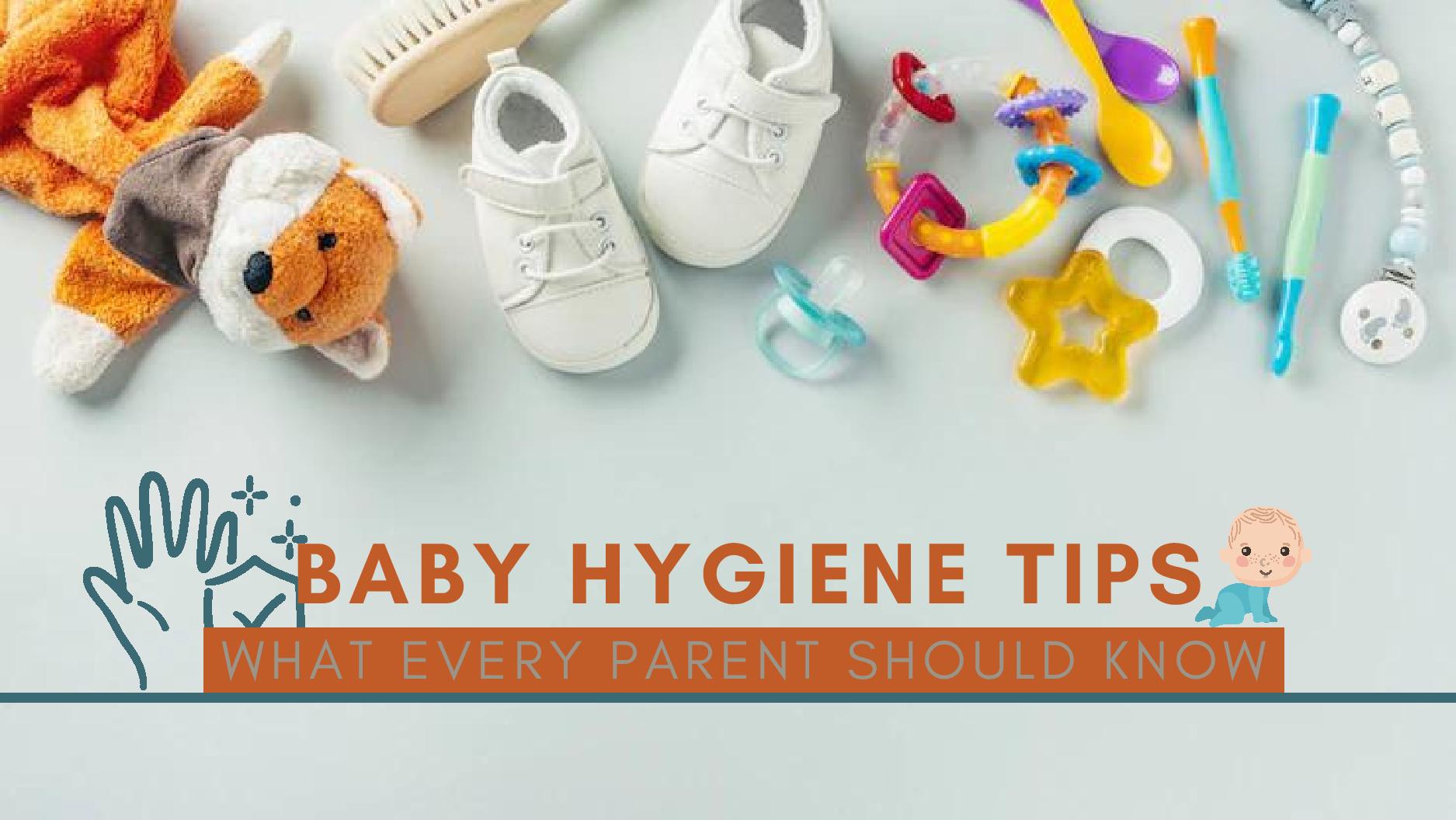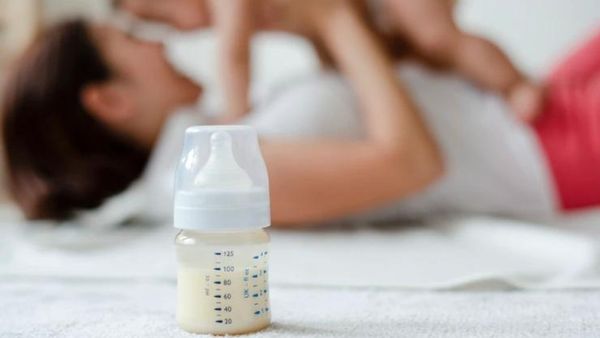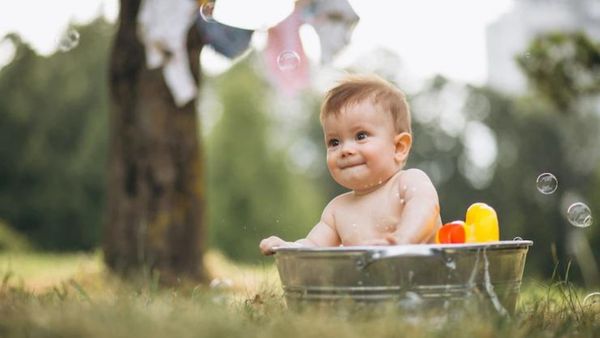Just In
- 3 hrs ago

- 4 hrs ago

- 7 hrs ago

- 11 hrs ago

Don't Miss
- Finance
 1:5 Stock Split: PSU Bank Fixes Record Date For First Ever Stock Split; Buy For Rs 650-680 Targets
1:5 Stock Split: PSU Bank Fixes Record Date For First Ever Stock Split; Buy For Rs 650-680 Targets - Sports
 T20 World Cup: 'He will definitely be in my list' - Anjum Chopra handpicks 2 wicketkeeper-batters for India squad
T20 World Cup: 'He will definitely be in my list' - Anjum Chopra handpicks 2 wicketkeeper-batters for India squad - News
 The 2024 Lok Sabha Elections: Tamil Cinema's Tryst With Democracy
The 2024 Lok Sabha Elections: Tamil Cinema's Tryst With Democracy - Movies
 Salman Khan Case: Actor Arrives In 'X' Cr Car At Airport With Tight Security Days After House Firing Incident
Salman Khan Case: Actor Arrives In 'X' Cr Car At Airport With Tight Security Days After House Firing Incident - Automobiles
 Tata Motors To Manufacture Jaguar Land Rover Cars In Billion Dollar TN Plant - Report
Tata Motors To Manufacture Jaguar Land Rover Cars In Billion Dollar TN Plant - Report - Technology
 OnePlus Ace 3 Pro Leak Hints at New Design; Expected Launch, Specifications We Know So Far
OnePlus Ace 3 Pro Leak Hints at New Design; Expected Launch, Specifications We Know So Far - Travel
 Journey From Delhi To Ooty: Top Transport Options And Attractions
Journey From Delhi To Ooty: Top Transport Options And Attractions - Education
 IIIT-Bangalore Introduces PG Diploma In Digital Product Design And Management
IIIT-Bangalore Introduces PG Diploma In Digital Product Design And Management
Baby Hygiene Tips: What Every Parent Should Know; Esp New Parents
It is time to watch your hygiene practices if your baby is experiencing health issues, which recur frequently. Unsanitary practices can be a major factor in causing your baby to fall ill.
Since your baby's immune system is weak, they are more susceptible to infections. Most of these infections can be prevented by keeping a careful eye on how you handle your child.

Baby Hygiene: What You Need To Know
It is essential to follow healthy hygiene practices when it comes to a baby's hygiene [1]. This should include all aspects of their day-to-day dealings with each other. It is your responsibility to keep your baby healthy and happy, so consider trying these simple baby hygiene tips.
It is extremely important for you to take proper hygiene precautions if your baby is premature. In this article, we discuss baby hygiene tips and simple parenting advice.
Baby Hygiene Tips For All The New Parents Out There!
1. Washing your hands
Whenever you handle your baby, you must only approach them after washing your hands. When feeding, bathing, or making your baby sleep, do wash your hands every time. You should also wash your hands after changing your baby's diaper. Unseen bacteria or viruses can cause several, sometimes, severe health problems [2].
2. Breast hygiene
The topic of breast hygiene is often overlooked by women; surprising right?. Your body can be exposed to sweat, chemicals from your dress, and deodorants. Before breastfeeding your baby, it is very important to clean your breasts, particularly your nipple area and areola. Taking a bath is either an option or, if it is not possible, using warm wet cloths to clean the area [3].

3. Sterilising bottles
If you are feeding your baby in a bottle, it is very important to sterilise the bottle well. Sterilisation by boiling it in water is the most effective method, killing the majority of harmful germs. Glass bottles are preferred. It is not recommended to boil plastic bottles, unless the manufacturers claim that it is safe [4].
4. Cleaning baby's mouth
It is necessary to clean their mouths, even though they do not have teeth. You can do this by simply wiping their gums and tongue with a soft cloth [5]. This will eliminate the remnants of the previous feeding. It is a very simple method of preventing fungal infections on the tongue. You should also clean the edges of their lips after each feeding.
5. Cutting baby's fingernails
There are three areas to which parents should pay particular attention. (1) Always trim your baby's nails so that they do not scratch themselves and it is best to do this when your baby is asleep. (2) Use baby-sized nail clippers and (3) do not cut the nails too short as this will hurt your baby.

6. Changing diapers
Diapers are of course a blessing for parents. However, if you leave your baby in the same diaper overnight, you are more likely to make them more susceptible to infections such as rashes and urinary tract infections. Make sure you change your baby's diapers frequently, especially after poop [6].
7. Bathing your baby
Taking them for a bath or using a soft, wet cloth is an effective way to clean their body. When cleaning your baby, you should use warm water and mild soap. Allowing sweat to remain on the baby's skin for an extended period can result in fungi. Allowing sweat to remain on the baby's skin for a long period of time can result in fungal infections.
8. Keep baby's toys clean
All babies love putting things in their mouths, and toys are often the nearest thing to their wee lill hands. Your child's toys need to be cleaned regularly with a safe disinfectant [7]. Clean hard plastic toys thoroughly or wash soft toys in the washing machine.

On A Final Note...
Having good and safe hygiene habits is important for all ages, but it is especially crucial for children in diapers or very young children. Keeping children and caregivers healthy by using safe diaper methods and infant feeding practices is essential to preventing germs from spreading.
-
 yoga spiritualityEid Ul Fitr 2024: 50 Modern Muslim Baby Boy Names Born On Eid With Meaning
yoga spiritualityEid Ul Fitr 2024: 50 Modern Muslim Baby Boy Names Born On Eid With Meaning -
 healthIn China, Infant Is Born With Four-Inch Tail Growing from Its Buttocks, Know The Reason Behind This
healthIn China, Infant Is Born With Four-Inch Tail Growing from Its Buttocks, Know The Reason Behind This -
 fashionRaha Kapoor Twins With Mommy Alia Bhatt At Ambani Pre-Wedding Bash, 7 Tips To Match Outfits With Your Baby
fashionRaha Kapoor Twins With Mommy Alia Bhatt At Ambani Pre-Wedding Bash, 7 Tips To Match Outfits With Your Baby -
 beautyFrom Pigtails To Messy Curls, 7 Trendy Hairstyles Generated By AI For Your Little Fashionista
beautyFrom Pigtails To Messy Curls, 7 Trendy Hairstyles Generated By AI For Your Little Fashionista -
 healthExclusive: Doctor Shares How There Is Rise Of Muhurat Deliveries Aligned With Ram Mandir Consecration
healthExclusive: Doctor Shares How There Is Rise Of Muhurat Deliveries Aligned With Ram Mandir Consecration -
 fashionNew Born Baby Photoshoot Ideas Interpreted By AI, 7 Tips To Make This Cute Session Memorable
fashionNew Born Baby Photoshoot Ideas Interpreted By AI, 7 Tips To Make This Cute Session Memorable -
 fashionYear Ender 2023: Baby Clothing Trends That Will Dominate The Little One's Wardrobe In 2024
fashionYear Ender 2023: Baby Clothing Trends That Will Dominate The Little One's Wardrobe In 2024 -
 insync50 Lord Krishna Names For Baby Boy That Will Bless Your Child With Divine Qualities
insync50 Lord Krishna Names For Baby Boy That Will Bless Your Child With Divine Qualities -
 pregnancy parentingTwo Wombs, Four Hearts: US Mom's Extraordinary Double Uterus Pregnancy
pregnancy parentingTwo Wombs, Four Hearts: US Mom's Extraordinary Double Uterus Pregnancy -
 pregnancy parentingDelhi Air Pollution: Pregnant Women Must Follow These 4 Things!
pregnancy parentingDelhi Air Pollution: Pregnant Women Must Follow These 4 Things! -
 home n gardenHappy Birthday Raha Kapoor: From Customized Wall Art To Figurine Hooks, 8 Ideas To Decorate Your Baby's Room
home n gardenHappy Birthday Raha Kapoor: From Customized Wall Art To Figurine Hooks, 8 Ideas To Decorate Your Baby's Room -
 pregnancy parentingExpert Opinion On Breastfeeding: How It Will Help Baby And Mother
pregnancy parentingExpert Opinion On Breastfeeding: How It Will Help Baby And Mother


 Click it and Unblock the Notifications
Click it and Unblock the Notifications



